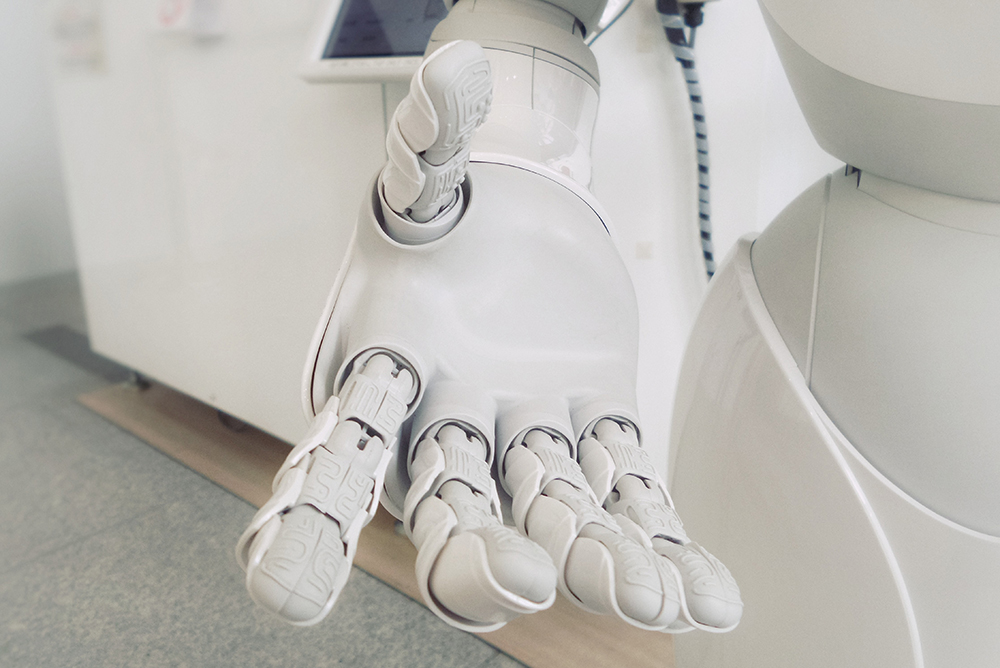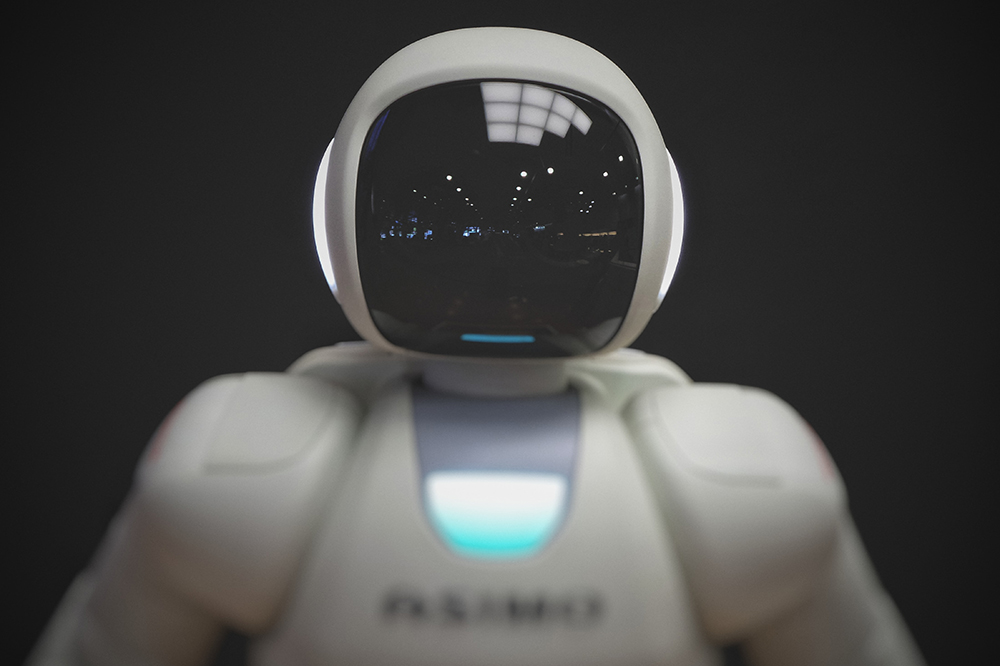“HASLER RESPONSIBLE AI” is a research program of the Hasler Foundation open to research institutions within the higher education sector or non-commercial research institutions outside the higher education sector. The foundation explains the goals of the program in a call for project proposals: “The HASLER RESPONSIBLE AI program will support research projects that investigate machine-learning algorithms and artificial intelligence systems whose results meet requirements on responsibility and trustworthiness. Projects are expected to seriously engage in the application of the new models and methods in scenarios that are relevant to society. In addition, projects should respect the interdisciplinary character of research in the area of RESPONSIBLE AI by involving the necessary expertise.” (CfPP by Hasler Foundation) Deadline for submission of short proposals is 24 January 2021. More information at haslerstiftung.ch.
About the “Handbuch Maschinenethik”
The “Handbuch Maschinenethik” (ed. Oliver Bendel) was published by Springer VS over a year ago. It brings together contributions from leading experts in the fields of machine ethics, robot ethics, technology ethics, philosophy of technology and robot law. It has become a comprehensive, exemplary and unique book. In a way, it forms a counterpart to the American research that dominates the discipline: Most of the authors (among them Julian Nida-Rümelin, Catrin Misselhorn, Eric Hilgendorf, Monika Simmler, Armin Grunwald, Matthias Scheutz, Janina Loh and Luís Moniz Pereira) come from Europe and Asia. They had been working on the project since 2017 and submitted their contributions continuously until it went to print. The editor, who has been working on information, robot and machine ethics for 20 years and has been doing intensive research on machine ethics for nine years, is pleased to report that 53,000 downloads have already been recorded – quite a lot for a highly specialized book. The first article for a second edition is also available, namely “The BESTBOT Project” (in English like some other contributions) …
New Journal on AI and Ethics
Springer launches a new journal entitled “AI and Ethics”. This topic has been researched for several years from various perspectives, including information ethics, robot ethics (aka roboethics) and machine ethics. From the description: “AI and Ethics seeks to promote informed debate and discussion of the ethical, regulatory, and policy implications that arise from the development of AI. It will focus on how AI techniques, tools, and technologies are developing, including consideration of where these developments may lead in the future. The journal will provide opportunities for academics, scientists, practitioners, policy makers, and the public to consider how AI might affect our lives in the future, and what implications, benefits, and risks might emerge. Attention will be given to the potential intentional and unintentional misuses of the research and technology presented in articles we publish. Examples of harmful consequences include weaponization, bias in face recognition systems, and discrimination and unfairness with respect to race and gender.
Intimate Relationships with Humanoid Robots
In October 2020 the book “Maschinenliebe” (ed. Oliver Bendel) was published by Springer. The title means “Machine Love”, “Machines for Love” or “Machines of Love”. Three contributions are in English. One of them (“Intimate Relationships with Humanoid Robots”) is by Yuefang Zhou and Martin H. Fischer (University of Potsdam). From the abstract: “The topic of human-robot intimate relationships is not only an intensely emotional one that is present in the mass media because of its ability to stir excitement. The very same topic also requires our understanding of basic mechanisms of the human mind and of social cognition in particular. A scientifically-minded framing of the debate around whether and how we might engage in intimate relationships with humanoid robots in the near future might in turn improve our understanding of human sexuality. Viewed from this angle, intimate human-robot interaction is then merely one of many examples of studying human-machine interactions for the benefit of users and as a means of improving our knowledge about humans and the human mind. In this chapter we will adopt such a stance and discuss both social-cognitive and sexual aspects of this innovative topic, review available empirical evidence and offer some suggestions for further research.” More information via www.springer.com/de/book/9783658298630.
Love Dolls and Sex Robots in Prisons
On 24 October 2020 the article “Love Dolls and Sex Robots in Unproven and Unexplored Fields of Application” by Oliver Bendel was published in Paladyn, Journal of Behavioral Robotics. From the abstract: “Love dolls, the successors of blow-up dolls, are widespread. They can be ordered online or bought in sex shops and can be found in brothels and households. Sex robots are also on the rise. Research, however, has been slow to address this topic thoroughly. Often, it does not differentiate between users and areas of application, remaining vague, especially in the humanities and social sciences. The present contribution deals with the idea and history of love dolls and sex robots. Against this background, it identifies areas of application that have not been investigated or have hardly been investigated at all. These include prisons, the military, monasteries and seminaries, science, art and design as well as the gamer scene. There is, at least, some relevant research about the application of these artefacts in nursing and retirement homes and as such, these will be given priority. The use of love dolls and sex robots in all these fields is outlined, special features are discussed, and initial ethical, legal and pragmatic considerations are made. It becomes clear that artificial love servants can create added value, but that their use must be carefully considered and prepared. In some cases, their use may even be counterproductive.” The article is available here for free as an open access publication.
AI in Medical Robotics
The Emmy Noether Research Group “The Phenomenon of Interaction in Human-Machine Interaction” and the Institute of Ethics, History, and Theory of Medicine (LMU Munich) host a lecture series “on some of the pressing issues arising in the context of implementing and using AI in medicine”. “Each date will consist of three short talks by renowned experts in the respective fields followed by a roundtable discussion. All lectures are held online (Zoom) until further notice.” (Website The Philosophy of Human-Machine Interaction) On 19 November 2020 (18.00-19.30) the topic will be “AI in Medical Robotics”. Speakers will be Prof. Dr. Oliver Bendel (University of Applied Sciences and Arts Northwestern Switzerland), Prof. Dr. Manfred Hild (Beuth University of Applied Sciences Berlin) and Dr. Janina Loh (University of Wien). The presentation language is German. More information via interactionphilosophy.wordpress.com.
Service Robots in Epidemics and Pandemics
On October 14, 2020 the article “Der Einsatz von Servicerobotern bei Epidemien und Pandemien” (“The use of service robots in epidemics and pandemics”) by Oliver Bendel was published in HMD – Praxis der Wirtschaftsinformatik. From the abstract: “Robots have always been used to carry out dangerous tasks or tasks that are not manageable for us. They defuse bombs, transport hazardous materials and work their way into areas inaccessible to humans. The COVID-19 pandemic has shown that even service robots, which are not actually intended for special cases, can provide helpful services in the care of isolated persons and in the containment of diseases. This paper presents four types of service robots. Then it gives examples of robot use during the coronavirus crisis in 2020. Finally, the question in which extent and in what way the robot types can cooperate and whether some of them can be developed into generalists is examined. Business models and operating opportunities are also discussed. The paper shows that cohorts of robots could be vital in the future.” It is part of Volume 57, Issue 6 (December 2020) with a focus on robotics and is available here for free as an open access publication (in German).
Investigating Robot Enhancement
Social robots and service robots usually have a defined locomotor system, a defined appearance and defined mimic and gestural abilities. This leads, on the one hand, to a certain familiarization effect. On the other hand, the actions of the robots are thus limited, for example in the household or in a shopping mall. Robot enhancement is used to extend and improve social robots and service robots. It changes their appearance and expands their scope. It is possible to apply attachments to the hardware, extend limbs and exchange components. One can pull skin made of silicone over the face or head, making the robots look humanoid. One can also change the software and connect the robot to AI systems – this is already done many times. The project or thesis, announced by Oliver Bendel in August 2020 at the School of Business FHNW, should first present the principles and functional possibilities of robot enhancement. Second, concrete examples should be given and described. One of these examples, e.g., the skin made of silicone, has to be implemented. Robots like Pepper or Atlas would be completely changed by such a skin. They could look uncanny, but also appealing. The project will start in September 2020.
Launch of the Interactive AI Magazine
AAAI has announced the launch of the Interactive AI Magazine. According to the organization, the new platform provides online access to articles and columns from AI Magazine, as well as news and articles from AI Topics and other materials from AAAI. “Interactive AI Magazine is a work in progress. We plan to add lot more content on the ecosystem of AI beyond the technical progress represented by the AAAI conference, such as AI applications, AI industry, education in AI, AI ethics, and AI and society, as well as conference calendars and reports, honors and awards, classifieds, obituaries, etc. We also plan to add multimedia such as blogs and podcasts, and make the website more interactive, for example, by enabling commentary on posted articles. We hope that over time Interactive AI Magazine will become both an important source of information on AI and an online forum for conversations among the AI community.” (AAAI Press Release) More information via interactiveaimag.org.
Next ROBOPHILOSOPHY in Helsinki
One of the world’s most important conferences for robot philosophy (aka robophilosophy) and social robotics, ROBOPHILOSOPHY, took place from 18 to 21 August 2020, not in Aarhus (Denmark) as originally planned, but – due to the COVID 19 pandemic – in virtual form. Organizers and presenters were Marco Nørskov and Johanna Seibt. A considerable number of the lectures were devoted to machine ethics, such as “Moral Machines” (Aleksandra Kornienko), “Permissibility-Under-a-Description Reasoning for Deontological Robots” (Felix Lindner) and “The Morality Menu Project” (Oliver Bendel). The keynotes were given by Selma Šabanović (Indiana University Bloomington), Robert Sparrow (Monash University), Shannon Vallor (The University of Edinburgh), Alan Winfield (University of the West of England), Aimee van Wynsberghe (Delft University of Technology) and John Danaher (National University of Ireland). In his outstanding presentation, Winfield was sceptical about moral machines, whereupon Bendel made it clear in the discussion that they are useful in some areas and dangerous in others, and emphasized the importance of machine ethics for the study of machine and human morality, a point with which Winfield again agreed. The last conference was held in Vienna in 2018. Keynote speakers at that time included Hiroshi Ishiguro, Joanna Bryson and Oliver Bendel. The next ROBOPHILOSOPHY will probably take place in 2022 at the University of Helsinki, as the organisers announced at the end of the event.









